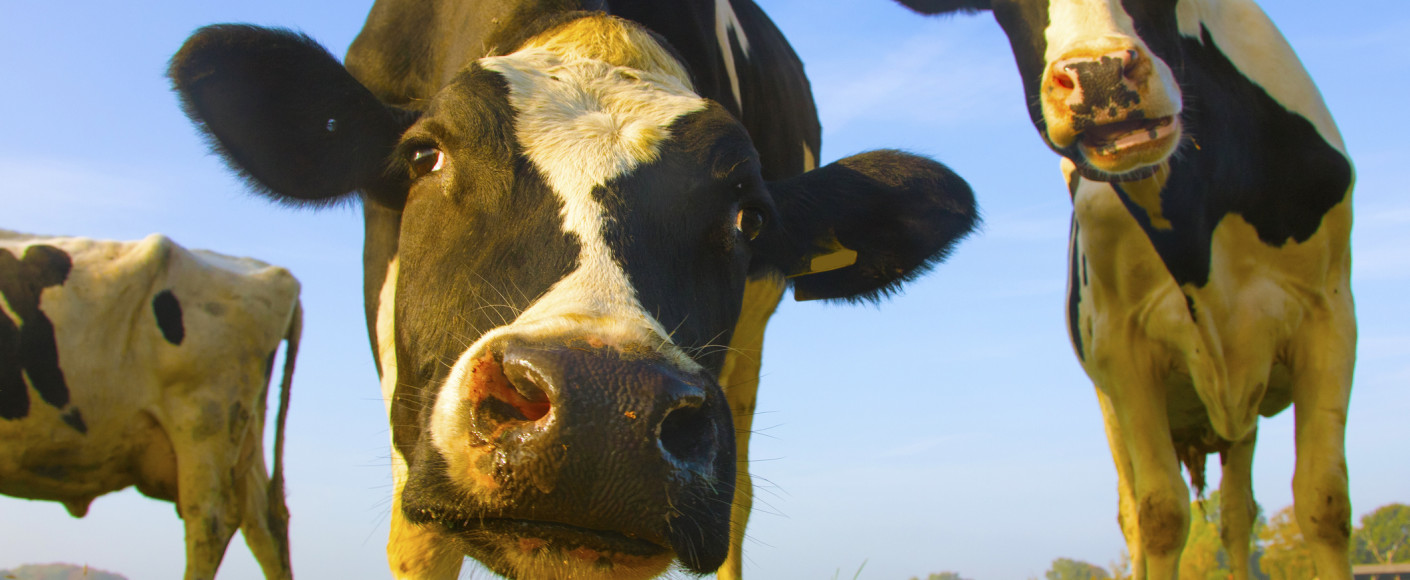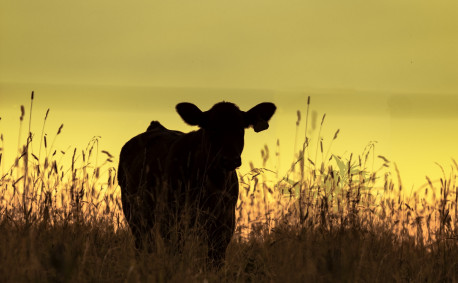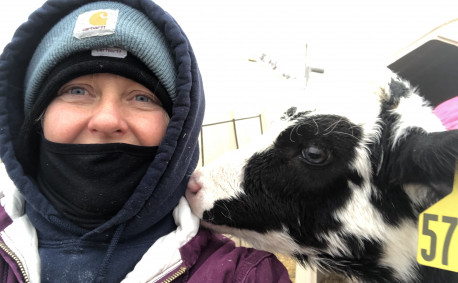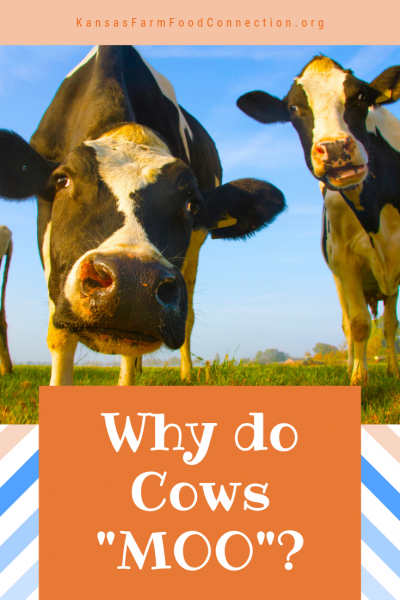Why Do Cows Moo?
Perhaps you’ve driven down a country road, seen a herd of cows and rolled your window down to call “moooooo” as you pass. No? Just me? Well, it turns out, I might actually have been saying hello. (Or saying something.)
Cows moo to communicate with each other. Researchers know it and ranchers do, too. In fact, many ranchers know their cattle so well, they can understand the different moos and what they mean.
I observed this firsthand when I visited a ranch in central Kansas. The rancher was vaccinating several calves and, to do so, he had to separate them from their mothers for a few moments. The mothers were in the next pen over so they could see their babies. As the rancher went about his work, the mooing was constant. To me, it was part of the environment — the wide-open blue sky, the light brown grass covering the prairie and the mooing. As soon as the babies were reunited with their mothers, the mooing stopped. Instantly. Sudden silence except for the sound of Kansas wind.
I don’t know exactly what those cows were saying to each other, but I could tell it was more than an involuntary or random noise. I asked the rancher about it and he said it’s very common to hear them talking to each other.
What Do Cow Moos Mean?
So, what do cows say? We break down some common moos for you:
- Where are you? Cows use mooing to find one another. Research shows individual cows have distinct voices, so as they moo to one another, the animals nearby know who’s who. If a baby is looking for its mother, it can recognize her moo.
- Let’s get it on. Cue the Marvin Gaye music, because just like many animals have mating calls, so do cattle. A study found cows moo more frequently and more loudly during the peak portion of their reproductive cycle. I guess it’s their way of saying, “I’m in the mooood.”
- I’m hungry. Whether a baby calf wants milk from its mother or a herd wants to let the farmer know it’s time to eat, they will tell you. (A bit like my dog begging when it’s 5 p.m.)
- Help me. When cows are stressed out, they moo. Often these moos are more frequent and higher-pitched.
- Back off. Bulls moo, too. And this is one call they are more likely to make. Mooing lets those around know they’re angry.
Granted, cattle make a lot of other noises — grunts and snorts. But mooing is the most common, like an everyday language. Frankly, if I hear a bull bellowing, I probably don’t want to stick around for a translation.
Fun fact: Herds moo in different accents!





